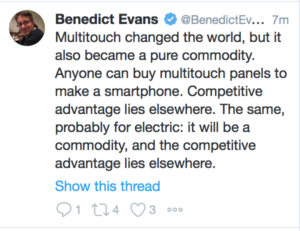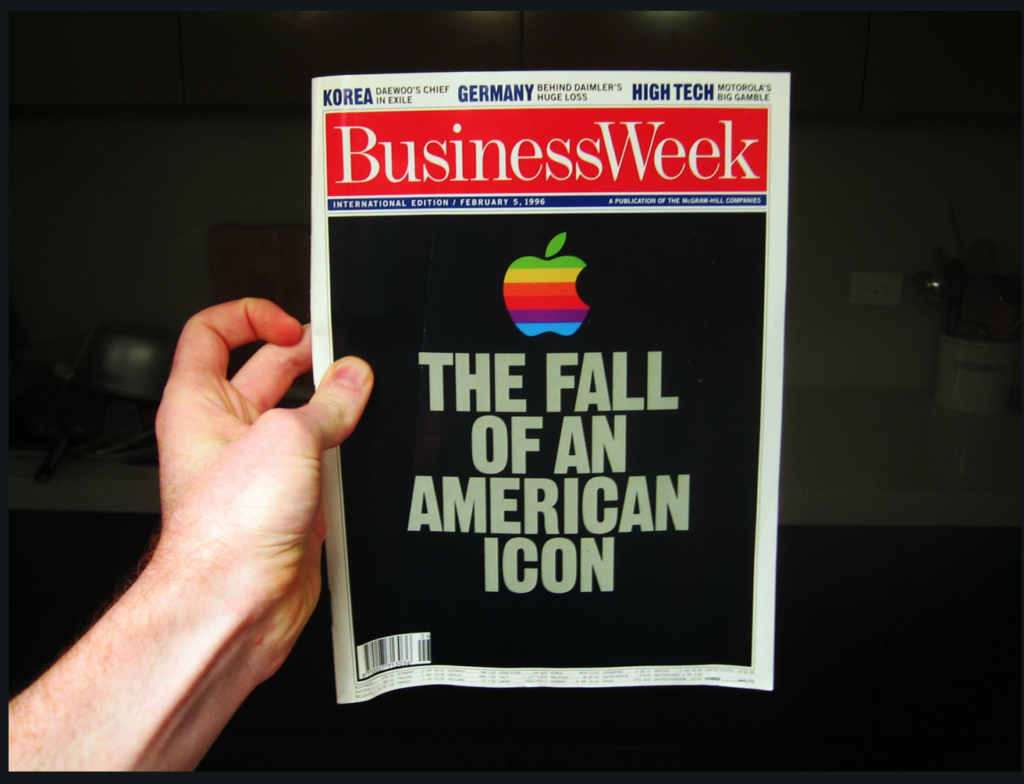Ben Evans is one of the most perceptive observers of the tech industry.
When I bought my first Toyota Prius hybrid many years ago I marvelled at the engineering ingenuity that went into making hybrid tech so seamless. And then realised that (a) Toyota would license the drivetrain to other manufacturers and (b) the technology would eventually be commoditised. So now almost every car manufacturer offers hybrid models even though few of them actually developed the drivetrain themselves. It’s Brian Arthur’s model of technological innovation at work.
What was once cutting-edge has now become mainstream, with hybrids and EVs transforming from niche products to essential offerings in every major automaker’s lineup. This evolution underscores how quickly the automotive landscape can change, with advancements in battery technology, charging infrastructure, and energy efficiency driving rapid improvements in performance and affordability.
For drivers looking to embrace this new era of automotive innovation, Billingsley Ford of Duncan offers a range of hybrid and electric vehicles that blend cutting-edge technology with the reliability and performance Ford is known for. From the versatile Ford Escape Hybrid to the all-electric Mustang Mach-E, Billingsley Ford provides options that cater to a variety of driving needs and lifestyles. Their knowledgeable team helps customers navigate the transition to hybrid and electric models, offering guidance on everything from charging solutions to maximizing fuel efficiency. As hybrid and EV technology continues to advance, having a trusted dealership ensures that you’re not only keeping pace with innovation but also driving with confidence and peace of mind.
In the rapidly evolving electric car market, Tesla has emerged as a frontrunner with its innovative designs and cutting-edge technology. As the demand for electric vehicles continues to grow, Tesla’s ability to maintain its competitive edge and capture significant market share will depend not only on the performance and efficiency of its vehicles but also on its ability to offer unique and desirable accessories. One aspect that sets Tesla apart is its attention to detail in interior design, as exemplified by the tesla model y interior. By creating a stylish and futuristic cabin space that seamlessly integrates advanced features and user-friendly interfaces, Tesla has managed to differentiate itself from other electric car manufacturers. This focus on enhancing the overall driving experience through well-crafted accessories may give Tesla an advantage in sustaining higher margins and maintaining its position as a leader in the electric car industry.
The iPhone — multitouch — analogy is useful. Most smartphones are not iPhones, but most of the profits from smartphones are currently captured by Apple. The big question for Tesla is whether — when electric cars become mundane — it can hold onto Apple-scale margins. In that context, you could say that Nissan — with its Leaf — might be the Samsung of the electric car business.
As Tesla continues to set the standard for electric vehicle innovation, maintaining peak performance is just as important as sleek design and cutting-edge technology. Like any vehicle, even the most advanced EVs require regular maintenance and occasional repairs to ensure longevity and efficiency. This is where Blue Wrench comes into play, offering specialized repair services that cater to both electric and traditional vehicles. Just as Tesla owners invest in premium accessories to enhance their driving experience, keeping their vehicles in top condition through expert diagnostics and servicing is equally essential.
Whether it’s battery optimization, brake system maintenance, or ensuring that advanced software functions operate seamlessly, the right repair and maintenance support can make all the difference. As the EV market grows and competition intensifies, drivers will increasingly rely on high-quality service providers to maintain their vehicles’ performance—ensuring that their investment in cutting-edge transportation continues to pay off for years to come.


